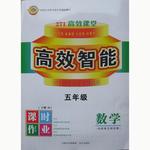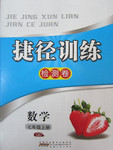题目内容
He examined the q_____ of the furniture carefully.
quality

 高效智能课时作业系列答案
高效智能课时作业系列答案 捷径训练检测卷系列答案
捷径训练检测卷系列答案 小夫子全能检测系列答案
小夫子全能检测系列答案The famous scientist Albert Einstein died in 1955. His___36__ now is in the central state of Kansas of the U.S. It belongs to a retired ___37__ doctor, Thomas Harvey. ___38__ did this happen? And why?
In the 1950s, Albert Einstein and Thomas Harvey __39__ each other when they both lived in Princeton, New Jersey. Einstein was working at Princeton University____40__ Doctor Harvey was working at Princeton Hospital. When Einstein died, Doctor Harvey was __41__ to examine his body. It was then that he started to study __42__ has become a long time examination of Einstein's brain. His goal was to __43__ some physical evidence of the scientist's genius.
Doctor Harvey, ___44__, did not tell Einstein's family that he __45__ the great man's brain. It was only later ___46__ the family learned of Doctor Harvey's work. They did not ___47__ the idea at first. After Doctor Harvey explained his idea to them, they agreed to __48__ him to study the brain. Doctor Harvey then asked __49__ scientists to help. They cut the brain __50__ three pieces. They marked each piece before placing it in containers __51__ chemical formaldehyde (甲醛) to protect it. Doctor Harvey has been ___52_ Einstein's brain since then. He has carried it with him as he moved from place to place. He has also lent parts of the brain to other scientists ___53__ study.
Only one researcher has found something ___54__. A doctor at the University of California found that the left part of Einstein's brain has more certain cells (细胞) than __55__. Such cells are known to feed brain. This may mean that the cells could affect intelligence.
| 【小题1】 |
|
| 【小题2】 |
|
| 【小题3】 |
|
| 【小题4】 |
|
| 【小题5】 |
|
| 【小题6】 |
|
| 【小题7】 |
|
| 【小题8】 |
|
| 【小题9】 |
|
| 【小题10】 |
|
| 【小题11】 |
|
| 【小题12】 |
|
| 【小题13】 |
|
| 【小题14】 |
|
| 【小题15】 |
|
| 【小题16】 |
|
| 【小题17】 |
|
| 【小题18】 |
|
| 【小题19】 |
|
| 【小题20】 |
|
One hot night last July, when our new baby wouldn’t or couldn’t sleep, I tried everything I could think of: a warm bottle, songs gentle rocking. Nothing would settle him. Guessing that I had a long night ahead of me, I brought a portable TV into his room, figuring that watching the late movie was as good a way as any to kill of the hours till dawn. To my surprise, as soon as the TV lit up, the baby quieted right down, and his little eyes focused brightly on the tube. Not to waste an opportunity for sleep, I then tiptoed out of the room, leaving him to watch the actors celebrate John Bellushi’s forty-fifth birthday.
My wife and I heard none of the baby that night, and the next morning when I went into his room, I found him still watching TV himself.
I found in my baby’s behavior a symbol of the new generation. My wife and I had given him some books to examine, but he merely spit upon them. When we read to him, he did not feel comfortable. And so it is in the schools. We find that our students don’t read and they look down upon reading and scold those of us who teach it. All they want to do is watch TV. After this experience with the baby, however, I have reached a conclusion: “Let them watch it!” If television is that much more attractive to children than books, why should we fight about it? Let them watch it all they want!
【小题1】Why did the author bring a TV set into his son’s room?
| A.To make his son keep quiet. | B.To spend the night by watching TV programs. |
| C.In order not to let his son feel lonely. | D.To make his son go to sleep as soon as possible. |
| A.unexpected | B.encouraging | C.exciting | D.calm |
| A.a doctor | B.a reporter | C.an editor | D.a teacher |
| A.They prefer reading to watching TV. |
| B.They like watching TV after school. |
| C.They would rather watch TV than read books. |
| D.They like their teachers who teach them reading. |
One night last February, a seventeen-year-old Duffy drove home along a winding road, he saw a strange light thrown against the tree. “I knew it wasn’t the moon”, he said. “I drive this road all the time and I notice little things out of place.”
Duffy stopped his car and got out to examine. Below him far down in the deep valley lay a broken car with its headlights on. Thirty minutes earlier, a man had driven off the edge of the road, which has no guardrail. His car fell and rolled end over end, landing on its top more than two hundred feet below.
Duffy rushed to call for help, then returned and got down to reach the injured driver. Snow covered the valley and the temperature was below freezing. After struggling back up the cliff, Duffy took off his jacket and shirt and wrapped the injured man in time, along with the blankets from his car.
Life-saving deeds are starting to become usual action for Duffy, the oldest of seven children. When he was 12, he saved his ten-year-old brother from drowning. Two years ago, his three-year-old sister ate rat poison, and Duffy cleaned out her mouth, make her drink milk to protect her stomach and called doctors.
“We have tried to teach the children good values, and it looks like we have got some reward for it.” His father says.
【小题1】 The strange light came from ________.
| A.The bright moon. | B.Duffy’s car. |
| C.The broken car in the valley | D.an unknown place |
| A.on the top of the cliff | B.with its wheels upward |
| C.with its head upward | D.on the road as usual |
| A.two | B.three | C.four | D.five |
| A.to help people in danger | B.how to save people’s lives |
| C.to remember the value of the car | D.how to do business |
Picking tomatoes
For as long as I can remember, Grandma’s plentiful tomato garden has been a sign of summer’s end. Each September, just as the decreased heat of the sun suggests cooler days, Grandma requests my help in her tomato garden. She convinces me she cannot pick tomatoes without my youthful eyes and quick mind. She says we need to examine each tomato and agree on its readiness for picking. While Grandma’s request for my help in the tomato garden is always the same, her desire for my help seems to increase each year.
Grandma has eyes for finding even the tomatoes hidden by undergrowth and other tomatoes. I, however, just turn circles looking for the ones I think Grandma will like. I spot what looks like a ripe tomato, head in its direction, and then get sidetracked by another that appears to be equally ripe. I usually end up watching Grandma and trying to stay out of her way, which seems the only way my eyes and mind ale useful.
There we are, lost in the tomato vines(藤). Grandma’s eyes are always knowing, and they are no different in the vegetable garden. From afar she spots what looks like a ripe tomato. As she walks toward the garden, she evaluates the tomato for a second time. but from a different angle. I already know it will end up in the basket with the pile of others Grandma has carefully chosen. However, Grandma acts as if she needs a final look to be sure. She calls me to her side, kneels beside the vine while enjoying the warmth of the fading sunlight on her face, and grasps the tomato in her hand. She turns each round, red ball toward the sunlight before disconnecting it from thevine with a half-hearted smile.
She then looks at me. I nod my head and smile. Grandma assumes I smile in agreement with her tomato selection. I know I smile, instead, at her.
【小题1】Why does Grandma ask the author to go to the tomato garden with her?
| A.He can help pick more tomatoes. |
| B.He can learn the hardship of labor. |
| C.She enjoys staying with him while working. |
| D.She tries to share the happiness of harvest with him. |
| A.is an inefficient tomato picker |
| B.really has youthful eyes and quick mind |
| C.has spent a lot of time gardening with Grandma |
| D.is a naughty child trying to be out of Grandma’s sight |
| A.realizes her true intentions |
| B.feels very happy to pick tomatoes for her |
| C.confirms that her choice of tomato is great |
| D.appreciates her skill in finding ripe tomatoes |
| A.The grandchild will become more skillful at gardening than Grandma. |
| B.Grandma will develop more patience in working with the grandchild. |
| C.The grandchild will gradually become more independent of Grandma. |
| D.Grandma’s need for the grandchild's company will grow over time. |